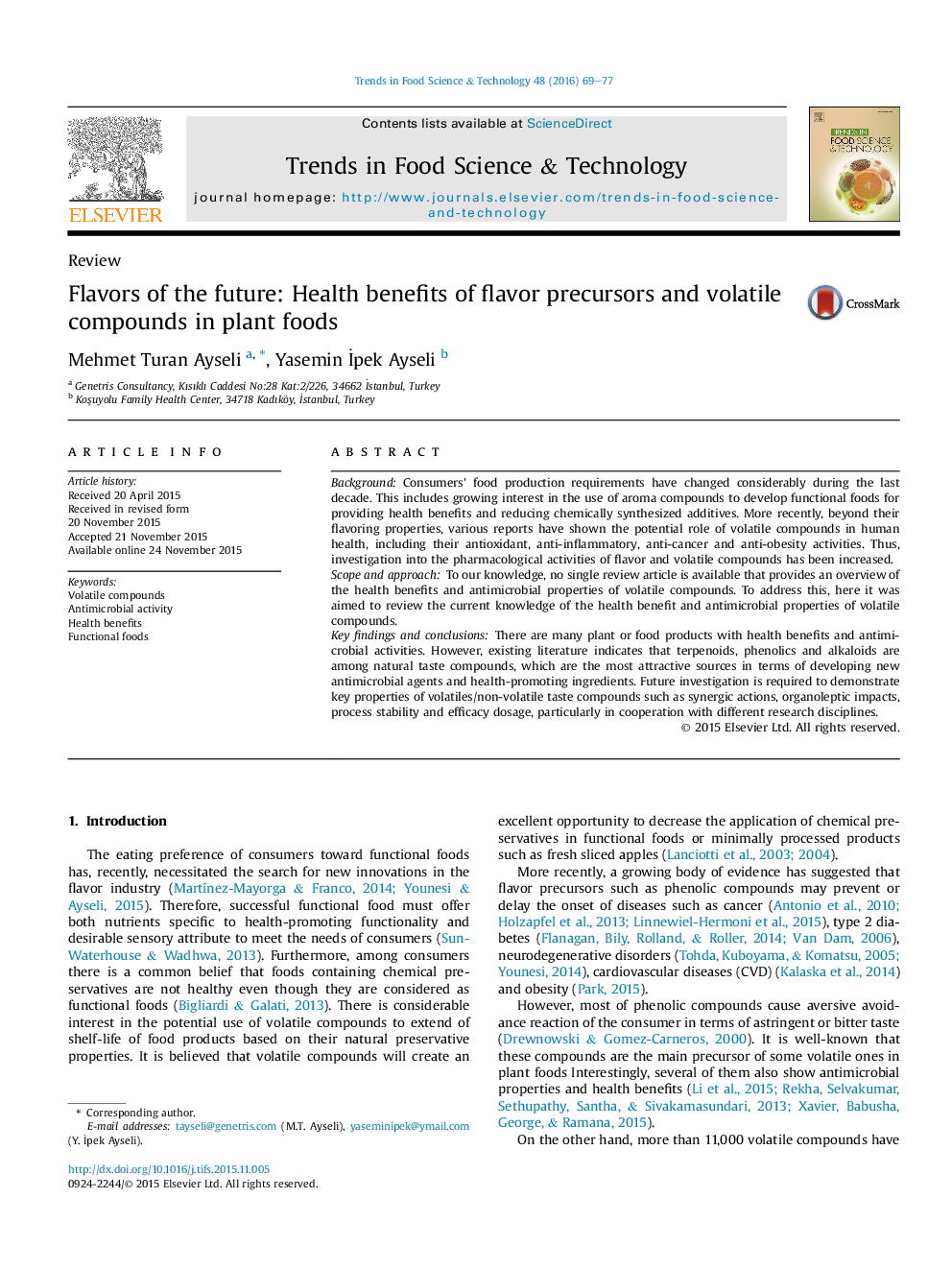| Article ID | Journal | Published Year | Pages | File Type |
|---|---|---|---|---|
| 2098543 | Trends in Food Science & Technology | 2016 | 9 Pages |
•Volatile compounds may improve human health beyond flavoring properties.•Volatile compounds may be used to reduce chemical additives in foods.•Up to now, over 11,000 volatile compounds have been identified in foods.•Taste, as opposed to perceived nutrition or health value.
BackgroundConsumers' food production requirements have changed considerably during the last decade. This includes growing interest in the use of aroma compounds to develop functional foods for providing health benefits and reducing chemically synthesized additives. More recently, beyond their flavoring properties, various reports have shown the potential role of volatile compounds in human health, including their antioxidant, anti-inflammatory, anti-cancer and anti-obesity activities. Thus, investigation into the pharmacological activities of flavor and volatile compounds has been increased.Scope and approachTo our knowledge, no single review article is available that provides an overview of the health benefits and antimicrobial properties of volatile compounds. To address this, here it was aimed to review the current knowledge of the health benefit and antimicrobial properties of volatile compounds.Key findings and conclusionsThere are many plant or food products with health benefits and antimicrobial activities. However, existing literature indicates that terpenoids, phenolics and alkaloids are among natural taste compounds, which are the most attractive sources in terms of developing new antimicrobial agents and health-promoting ingredients. Future investigation is required to demonstrate key properties of volatiles/non-volatile taste compounds such as synergic actions, organoleptic impacts, process stability and efficacy dosage, particularly in cooperation with different research disciplines.
